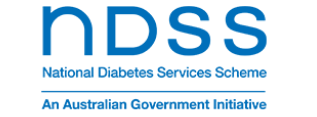
What’s on this page |
Schools have a legal obligation to ensure a student does not experience discrimination because of their type 1 diabetes. They must follow the laws regarding medication, consent and duty of care for the student.
The school principal is ultimately responsible for ensuring the school provides appropriate support to the student so they are safe and can participate fully in school activities. The principal is also responsible for appointing designated staff as a key support in the day-to-day diabetes care for the student.
Key responsibilities of the school principal
There are five key principles that can guide school principals to ensure they meet their legal responsibilities.
1. Understanding the law and creating a supportive environment: Principals play a key role in creating a supportive school environment. This means helping students fully participate in school life, and making sure staff feel confident and are well-trained to support them.
2. Implementing a student’s diabetes management plan: Each student with type 1 diabetes will have an individual diabetes management plan written by their diabetes health professional(s). A principal is responsible for making sure:
- the plan is followed in the school setting in a way that avoids stigma and discrimination for the student
- staff can safely support the student as set out in the plan
- there are processes for managing medications, including receiving medications from parents or students, safe storage on school grounds and proper disposal once used.
3. Ensuring that there is access to training and education: The school principal must make sure that all school staff supporting a student with type 1 diabetes are appropriately trained, so they can meet their duty of care obligations. This means ensuring enough designated staff complete the Level 2 Diabetes in Schools training, as well as Level 3 training if required, based on the school’s size and number of students that have type 1 diabetes.
4. Effective communication: Principals play a key role in supporting clear and consistent communication between school staff and parents/carers so that everyone understands:
- each other’s roles and responsibilities, including knowing who the designated staff members are
- the diabetes support needs of the student including any changes to their diabetes management plan
- the process for designated staff and parents/carers to share important updates (such as using a communication log during the school day).
5. Ensuring consent is documented: Before staff can help manage a student’s diabetes, schools must have written consent. This consent should:
- be included in the student’s diabetes management plan
- clearly state what support has been agreed to and who will provide it
- authorise the sharing of relevant health information with school staff and others involved in the student’s care such as their diabetes health professional(s).
Plan and book staff training well in advance
It is important to book staff training in advance to avoid missing training opportunities. Staff names can be changed on the training blocks once exact staffing requirements are known.
Resources and links for school principals
- Diabetes in Schools training
- Diabetes management plan
- About type 1 diabetes
- Training program FAQs
- Diabetes Australia Language Statement
- Reasonable adjustments
- Anti-discrimination laws
- Medicines and poisons laws
- Consent laws
- Duty of care
Visit the resource library to access resources for principals supporting a student with type 1 diabetes at their school.
Last updated: September 2025


